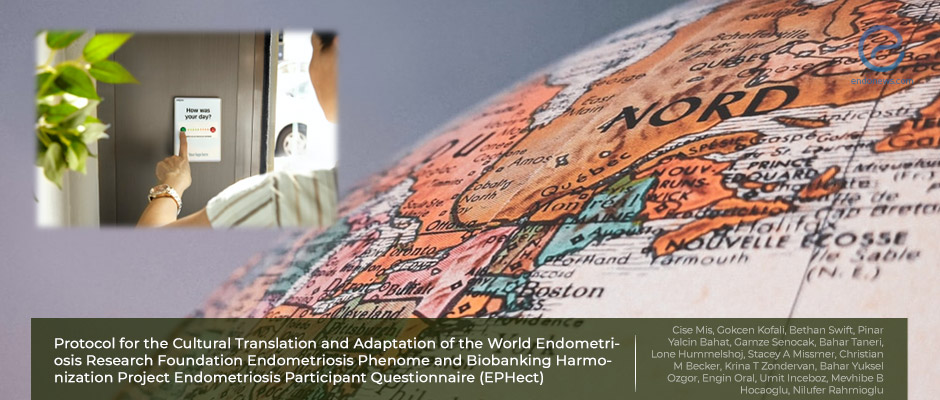Cross-cultural translation and adaptation of an endometriosis survey
Dec 21, 2021
The translation of the Endometriosis Participant Questionnaire was deemed to be successful.
Key Points
Highlight
- Standardized and applicable tools such as a global questionnaire are crucial for continuing research on endometriosis with larger-scale populations and data.
Importance
- To understand the underlying causes of endometriosis better, the patient population should be investigated widely.
- The Endometriosis Participant Questionnaire (EPQ) was developed by the World Endometriosis Research Foundation Endometriosis Phenome and Biobanking Harmonization Project with this aim.
- The translation and cultural adaptation of the EPQ for content and face validity carry great importance in its successful application.
Key Results
- The survey was found to be clear, informative, and epidemiologically powerful.
- The participants thought the survey was long, taking from 30 to 60 minutes.
- A similar understanding of the questions by the participants was reported, however, some of the medical terminologies were needed to be explained by research assistants.
What’s done here
- This is a study that evaluates the cross-cultural translation and adaptation of the EPQ for content and face validity.
- A Turkish translation of the EPQ was performed after a careful conceptual design and expert revision.
- Eighty women from North Cyprus and Turkey (40 with endometriosis, 40 without) participated in the survey.
Limitations
- Only the minimal version of the questionnaire (EPQ-M) was applied which did not include questions on symptoms or characteristics belonging across the life course.
Lay Summary
Endometriosis is a disease that presents heterogeneously which makes it hard to identify a causal relationship. A patient-based questionnaire called Endometriosis Participant Questionnaire (EPQ) has been originated by The World Endometriosis Research Foundation Endometriosis Phenome and Biobanking Harmonization Project. It was aimed to increase the quality and quantity of the data collected from English-speaking countries and help in the planning and explication of large-scale studies. Since then, the survey was translated into several languages, however, the adaptation of the survey between these cultures has never been investigated.
Researchers led by Dr. Rahmioglu, from North Cyprus, Turkey, the UK, and the USA took part in a study in which they explored the cross-cultural translation and adaptation of the EPQ for content and face validity among 80 Turkish women aged between 18 to 55. The results of the study were published in the March 2021 issue of the journal “Frontiers in Global Women’s Health”.
Forty women who underwent laparoscopic surgery for the diagnosis of endometriosis and 40 women from the general population were included in the study. The study was designed to follow the guidelines and recommendations with a process that comprised of six phases: 1) conceptual equivalence, 2) forward translation, 3) backward translation, 4) expert panel revision, 5) cognitive testing, and 6) proofreading. After completing a thorough literature review by the means of conceptual definition in the targeted language, a translation to Turkish was performed by two native speakers of both of the languages. After a backward translation and a revision by the experts, the final Turkish version of the EPQ was formed.
The results of the cognitive testing done on 80 women revealed that the participants found the questionnaire to be clear but too long, and results showed it took them around 30-60 minutes to conclude. They also stated there were repetitive questions on pelvic pain and vaginal intercourse. Educated research assistants helped the participants to understand the questions in cases of confusion.
The authors recommended that even though the survey is detailed and takes some time to finish, it is essential for understanding how endometriosis is designated and that research assistants should be present to help the patients with lower educational levels to finish the questionnaire successfully. An administration of a short physical and mental survey prior to the EPQ is also recommended as these have been shown to affect the responses of the patients.
The article concludes by saying that standardized tools such as this one should be used in expanding the global research in endometriosis.
Research Source: https://pubmed.ncbi.nlm.nih.gov/34816197/
endometriosis World Endometriosis Foundation Endometriosis Participation Questionnaire survey questionnaire surgery recommendation intercourse pelvic pain

